Far too many games these days are built to be played in small bursts: brief encounters, designed for a world with too few hours in the day and too many digital distractions. And that’s fine! Blasting through a few rounds of Valorant or Rocket League matches is a wonderful way to spend some time.
But sometimes, you want something more—something meatier. Whether you’re looking for an entertaining way to blow a long stint at home or simply want to wrap your head around a satisfyingly complex experience, these 20 deep, intricate, and just plain great PC games will hold you for hours and hours and hours on end. They’re the best long PC games that you can play, and better yet in a time where it’s hard to get your hands on a new graphics card, many of them can be streamed via GeForce Now or Xbox Game Pass’s cloud streaming as well—no GPU required.
The best long PC games
Age of Empires IV
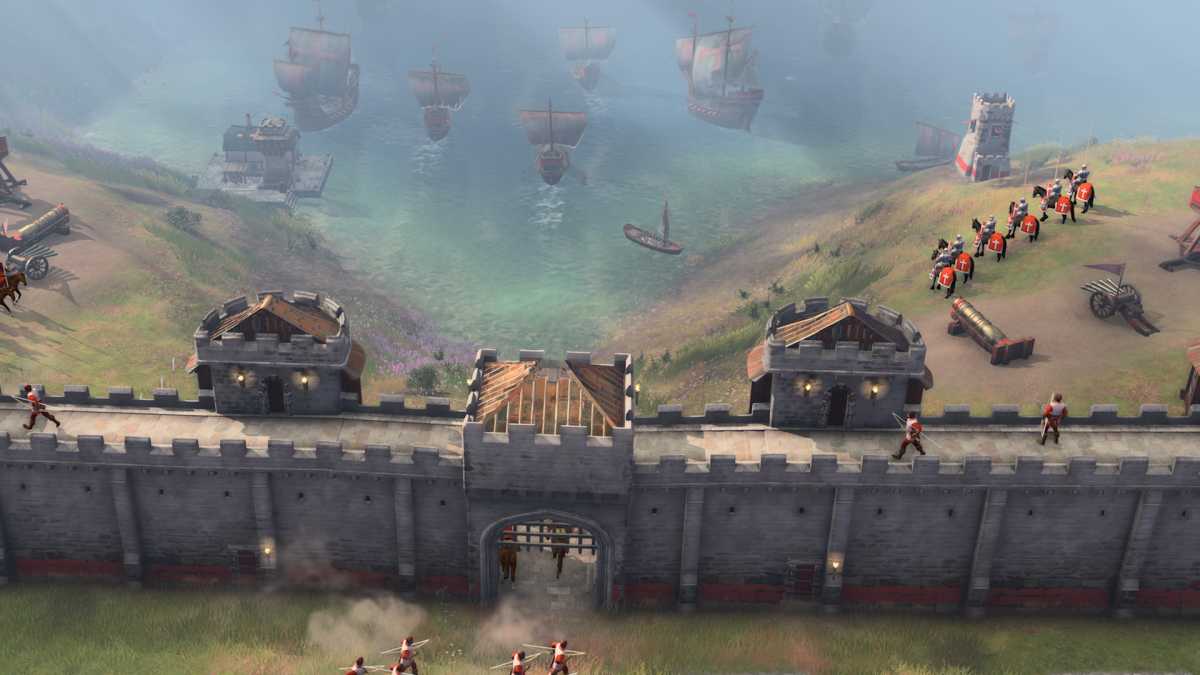
Microsoft
All these years later, Age of Empires II remains a gold standard in the real-time strategy genre, and it’s only getting stronger with the extra attention devoted to the recent Definite Edition release—but that’s not the only way to scratch that AoE itch. Age of Empires IV stays true (almost too true, at times) to the classic formula, offering four campaigns (each with branching civ-specific landmark choices that change your empire’s direction in different ways) and eight different empires to play in skirmish battles or multiplayer clashes. Each civilization brings its own quirks and advantages to the table, and as always, you can win the game in several different ways, from scoring a religious victory to building and holding a late-game Wonder.
It’s not quite as deep as AoE 2 is yet—that game has been out and being tweaked for over 20 years—but Age of Empires IV is nevertheless fun and deep. Better yet, it’s a strong foundation for updates yet to come, and you can play it for “free” as part of a monthly Xbox Games Pass subscription, the best deal in PC gaming.
Forza Horizon 5
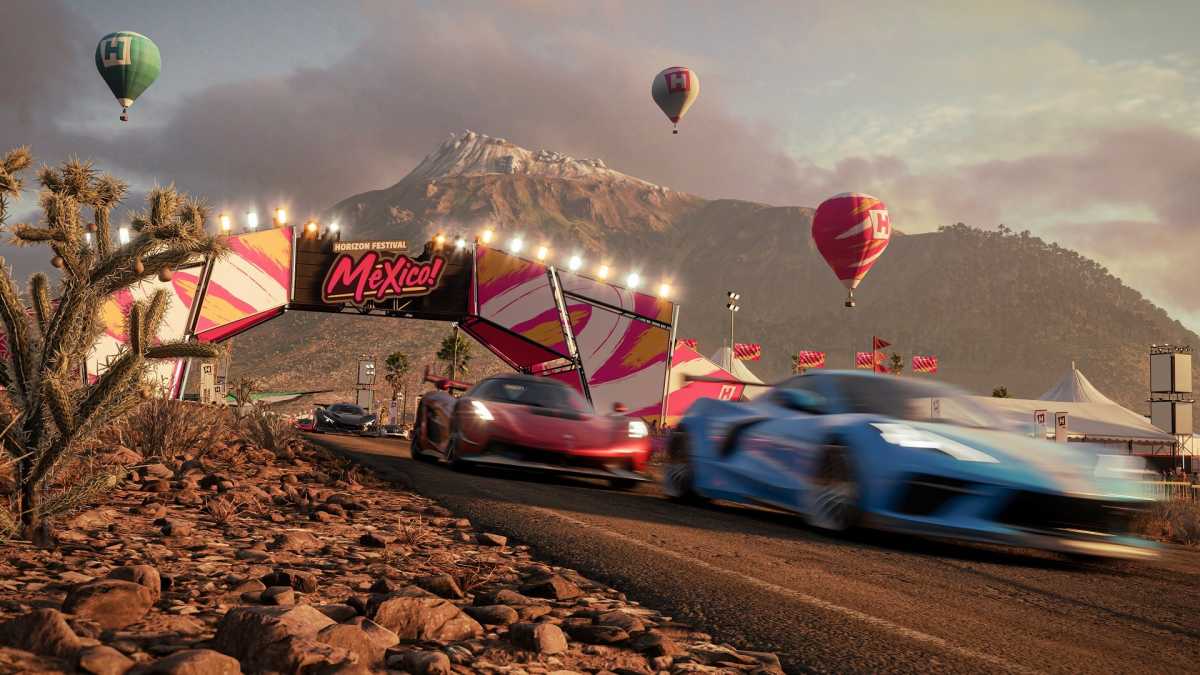
Microsoft
Forza Horizon remains the best pure arcade racer around, and Forza Horizon 5 perfects the series’ bombastic open-world action. Chasing down vehicles hidden in barns throughout Mexico never gets boring, especially when new races or goodies hide around seemingly every bend. Simply changing car classes can change the feel of almost every race (before you even wade into tuning your vehicles) and you can even create your own racing challenges, or play challenges crafted by others. If you’re a completionist who wants to cross off every box and collect all 500-plus cars, you’ll be blasting down streets for a long, long, long time—and enjoying every over-the-top second of it.
Like Age of Empires IV, you can snag Forza Horizon 5 on Steam, but it’s also available as part of a $10 per month Xbox Games Pass for PC subscription.
Final Fantasy VII Remake Intergrade
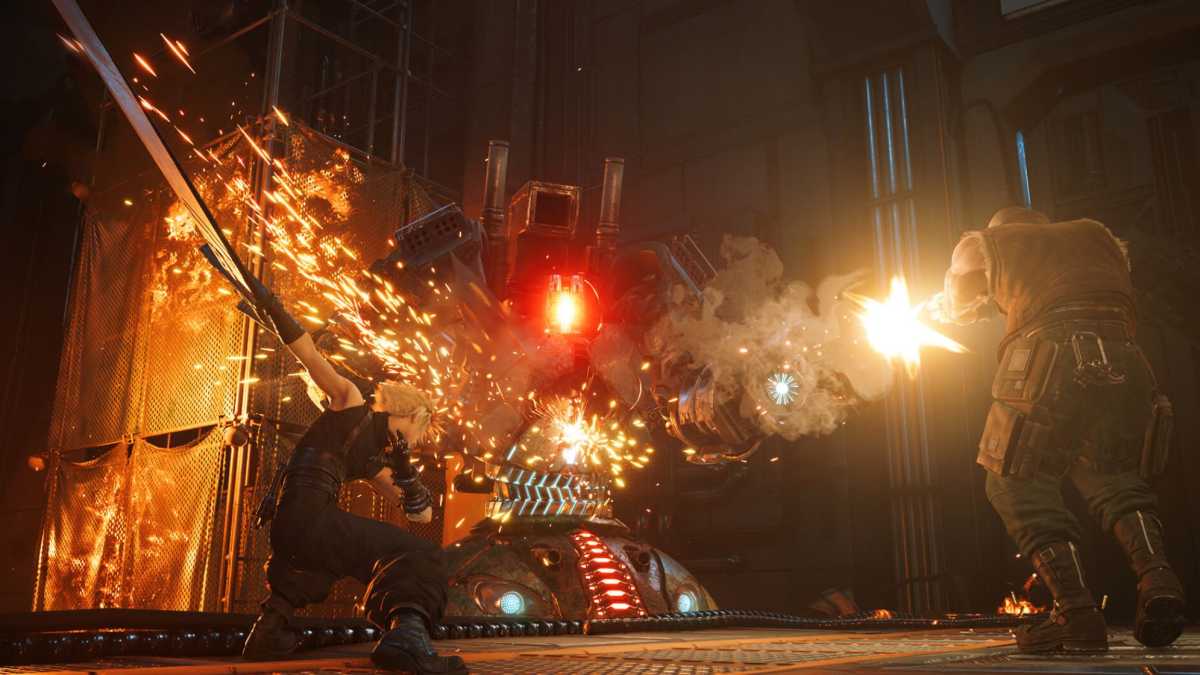
Final Fantasy VII Remake Intergrade
Remaking one of the most beloved JRPGs of all time took a very, very long time, and could have easily missed the mark, but this ‘re-imagining’ of the classic Final Fantasy VII gets almost everything right. It’s not a true remaster with just up-rezzed assets over the original, it literally retells and respins the tale of Cloud, Aerith, and Sephiroth with the same broad-brush strokes while going far deeper than the original ever could. But it’s not just the story that has changed, the combat now forgoes the traditional turn-based style in favor of team-based action that feels both frantic and fluid in pleasing ways. While the PC port of Final Fantasy VII Remake Intergrade is lackluster, if you’re a fan of the original and want to dive back into that world, this is well worth your time.
Back 4 Blood
Back 4 Blood, the spiritual successor to the Left 4 Dead series—by L4D developers Turtle Rock, no less—offers a surprisingly long campaign, and like past games the replayability value is very high in this one. Adding to the tried-and-true zombie shooting is a new card system that mixes up the combat encounters in many ways for both you and your teammates. It’s a tougher experience that requires more patience to get through, but the payoff for clearing a level is just that much greater.
Mass Effect: Legendary Edition
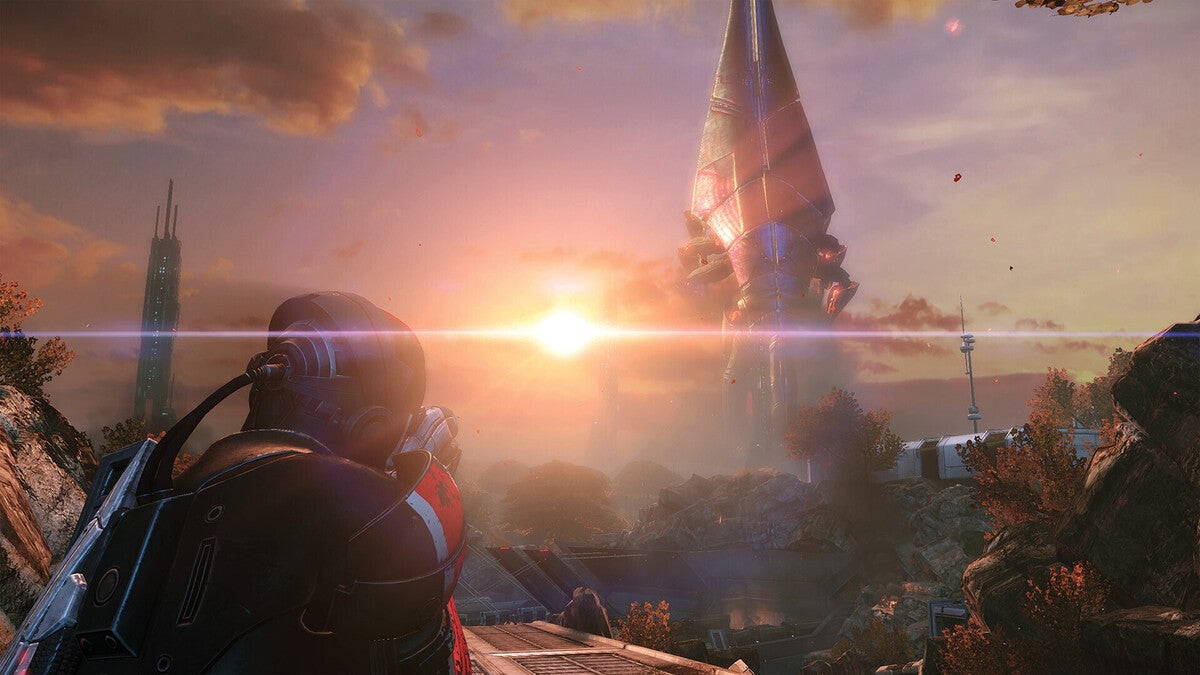
C’mon. It’s Mass Effect—and no, not just the first one, but all three games in the iconic sci-fi space epic, along with all of the DLC and expansions for each. That’s well over 100 hours worth of gameplay. If you’ve never played the trilogy, you owe it to yourself to finally do so (it truly is legendary). And even if you’ve already battled the reapers and wooed your crewmates as Captain Shepard, it’s worth diving back in after all these years thanks to the Legendary Edition’s graphical upgrades, increased technical polish, and rejiggered mechanics for ME1.
Days Gone
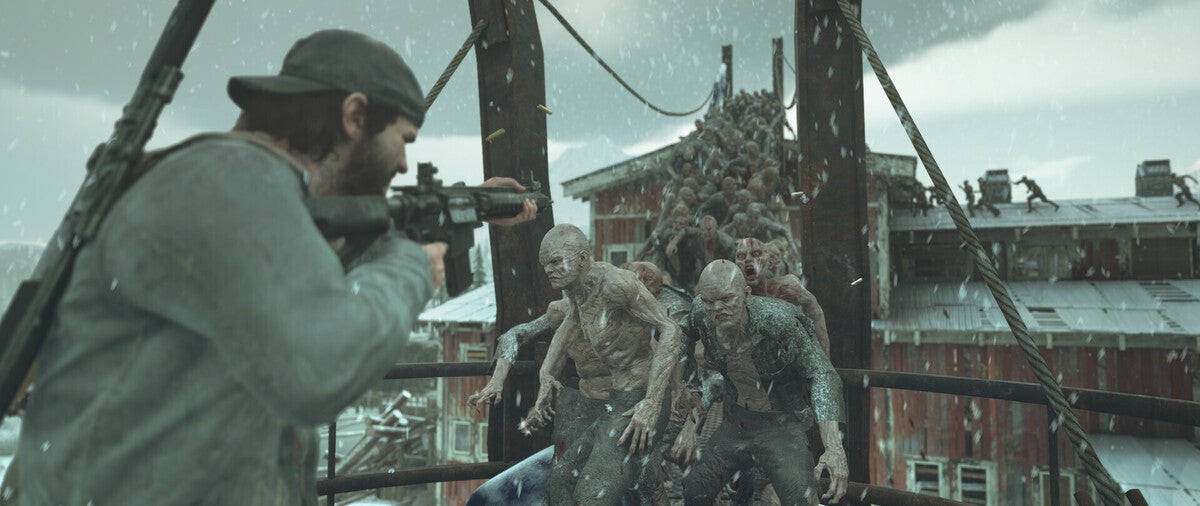
Former PlayStation exclusive Days Gone made the leap over to PC in early 2021, following in the footsteps of Horizon Zero Dawn. This game doesn’t get as much love as HZD, but a big part of that is due to its slow burn of an opening—it takes Days Gone many hours to really kick it into high gear, and some people burn out in the opening act. But if you stick with it, you’ll find a lot to like in this gritty post-apocalypse open-world zombie game, including a sick motorcycle and some truly terrifying hordes that come at you like an ocean of death. (It’s currently sitting pretty with a “Very Positive” rating on Steam after thousands of reviews.) If you breeze through the main story you’ll wrap this up in around 50 hours, but How Long To Beat says the game can last up to about 100 hours if you’re wandering at your leisure and tracking down all the extras. Days Gone, indeed.
Valheim

We don’t normally consider Early Access games for lists like this—you know, since they’re not finished—but Valheim deserves an exception. Not only is the game incredibly polished and feature-filled for its state, but it’s also a genuine sensation, selling over 6 million copies in its first month on the streets. Hot damn.
If you haven’t heard of Valheim, it’s a cooperative survival RPG where you and up to 10 other players control Vikings in a “procedurally generated purgatory,” battling against nature and monsters while trying to establish a foothold in the world via impressive base-building mechanics. (You can play it solo, too.) Slowly gaining skills and materials to be able to start exploring more of the massive open world never fails to satisfy. After you pick off the boss in each biome, various events ensue as a consequence—killing the frost dragon will send mountain drakes into a rage and provoke them into attacking your encampments, for example.
There’s still plenty of room for improvements, but Valheim already delivers a deep, meaty adventure with astonishing bang-for-buck considering its humble $20 price tag. It’s a social experience like no other. And hey, you can go fishing!
Microsoft Flight Simulator

The series sat dormant for years, but Microsoft Flight Simulator 2020 was worth the wait. The scale and scope of the game—you can explore the entire world!—stuns, and it’s made even more impressive by the use of real-time weather provided by Microsoft’s Azure service. Shortly after the game launched, a hurricane struck the United States, and you could fly into the middle of it in Flight Simulator while the storm battered the coastline. That makes revisiting previously toured locales rewarding over and over again, especially since the available planes each handle very differently. Dust off that flight stick and prepare to be enthralled for a long, long time.
Hitman 3
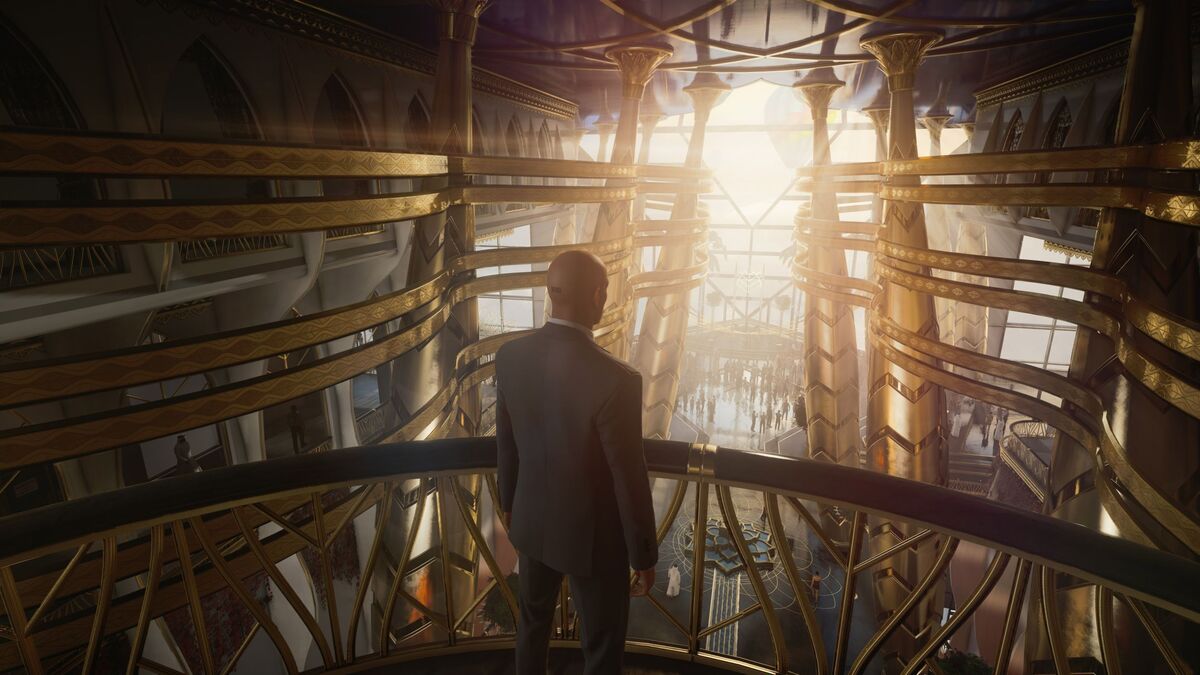
The final chapter of Agent 47’s modern adventures, Hitman 3 isn’t long in the traditional sense. Each of the six levels can be beaten in an hour or so if you know what you’re doing, and new players will probably blow through the campaign in about a dozen hours.
You don’t buy Hitman to mainline the campaign though.
Like the Hitman and Hitman 2 games that precede it (which I highly recommend playing first), Hitman 3’s levels are massive, intricate, and distinctive cause-and-effect murder sandboxes, with seemingly endless ways to neutralize your targets. A big part of the fun is replaying levels not once, not twice, but dozens of times—finding new areas, trying out fresh disguises, and discovering delightfully offbeat ways to stealthily kill people—in the quest for new high scores and, hopefully, an elusive Silent Assassin rating. IO Interactive’s modern Hitman trilogy has been one of the most spectacular gaming successes in recent memory, a pitch-perfect blend of old-school and new-school, seriousness and silliness. If you give yourself fully to it, you’ll find hours and hours of hilariously macabre fun. You can play the tutorial level for free if you want to get a feel for the mechanics.
Shin Megami Tensei III: Nocturne HD Remaster
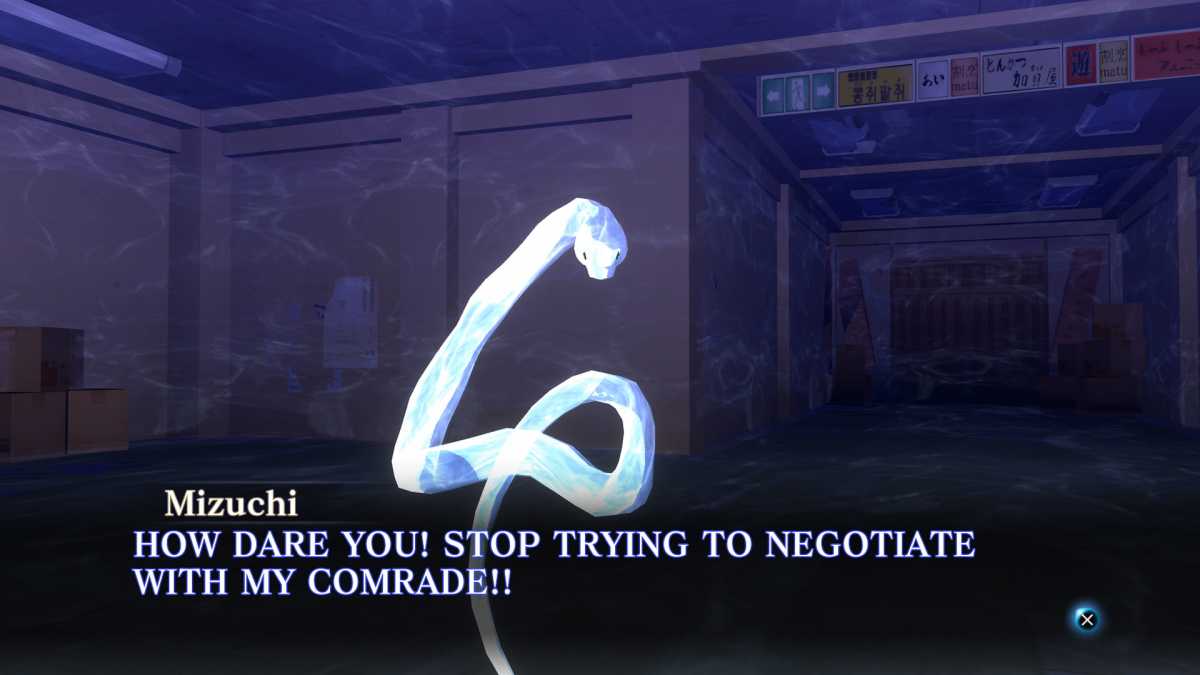
Shin Megami Tensei III: Nocturne
While the Persona series has seen more popularity in the west, the mainline Shin Megami Tensei JRPG series is very similar, yet very different at the same time. Persona games tend have a heavy focus on up-beat teenage stories of a team taking on the world, while the SMT games are typically darker and solitary. Sure, in Shin Megami Tensei III: Nocturne HD Remaster you have a party just like in Persona, but instead of getting to know a set character roster through a scripted story, over the course of SMT III you recruit demons that you fight in the world to round out your party, and they’re typically dispensable. In fact, it’s probably best not to get too attached to party members because SMT III is known for its steep difficulty. You will lose demons and you will often die yourself. Grindy turn-based combat is the name of the game here. If you do manage to make it through Shin Megami Tensei III: Nocturne, you will feel like a god and be pleased to know you made it through one of the best HD remasters out there.
Yakuza series

It’s been a long time coming but the Yakuza games are finally on PC, including the newer Yakuza 6 and zany—yet touching—spinoff Like A Dragon.
It’s a journey worth taking. Yakuza vacillates between silliness and soap opera with more grace than any other series, making you laugh right before it punches you in the gut. It’s a fascinating dichotomy, and only becomes more interesting over time as you get to know Kazuma Kiryu, Majima, and the rest of Yakuza‘s sprawling cast. The city is a character in itself as well, with Kiryu’s small slice of Tokyo evolving over the course of multiple decades. New buildings appear, old ones disappear, and occasionally Kiryu’s actions leave scars the city never quite recovers from. It’s an incredible saga.
Elite: Dangerous
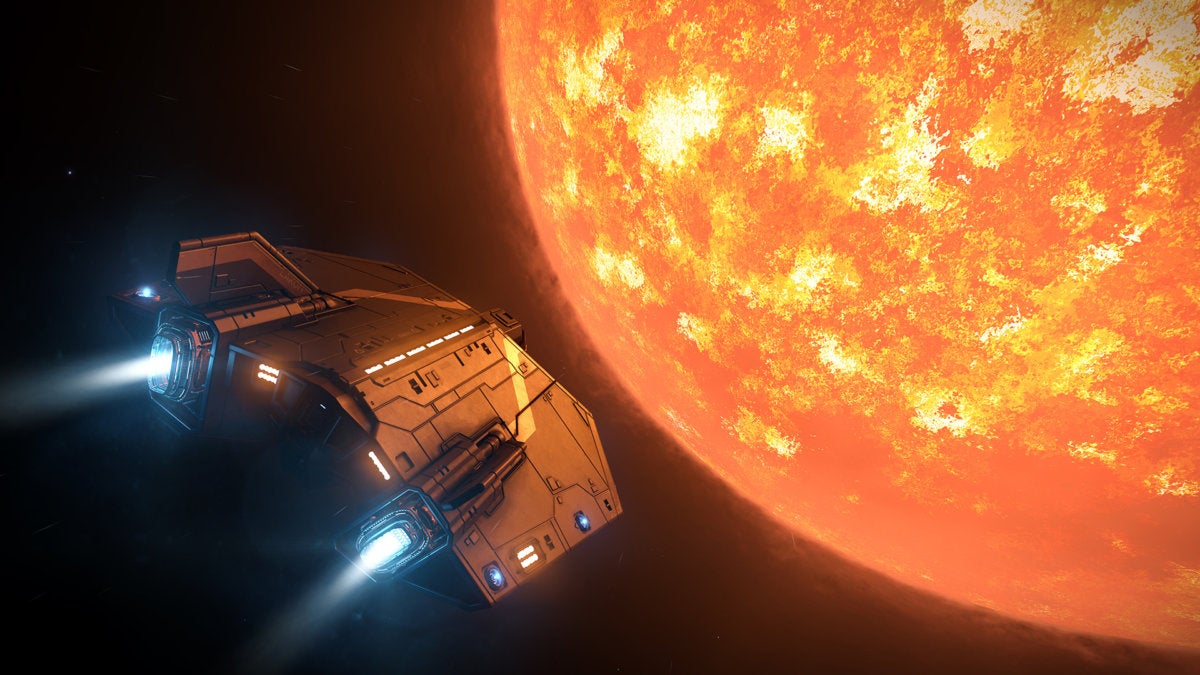
A sequel to the beloved Elite from the Amiga-era days, Elite: Dangerous is massive. This mammoth game drops you into the middle of a ginormous universe with more than 400 billion—yes, billion—individual star systems, each with their own planets, space stations, asteroids, players, and more. And new things are being added all the time, aided by the game’s connectivity requirement. Simply traveling from our reviewer’s starting point to Earth’s home system took roughly 30 hours.
Elite: Dangerous would be well served by better introductory tutorials. But for sheer size and scope, virtually no game beats this living, breathing universe, which receives ongoing updates, adding in things like gameplay enhancements, more story, and even full-fledged alien invasions. The game even just added foot-based combat with the Odyssey expansion after years of focusing on vehicular gameplay. Eat your heart out, Star Citizen.
Wasteland 3
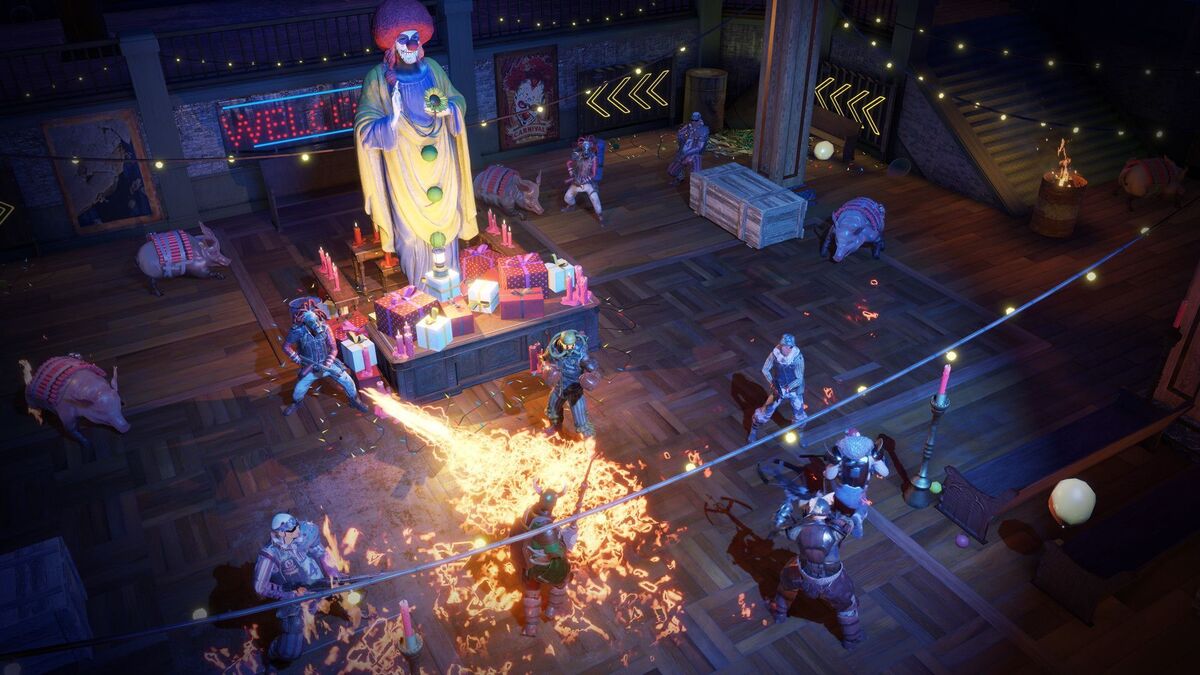
Wasteland 2 was our favorite game of 2014, heralding a glorious return to form for CRPGs. Wasteland 3 is better in every way, with wonderfully defined worldbuilding, much more streamlined gameplay, and a story that keeps you hooked. The turn-based tactical gameplay never starts to feel stale, unlike the end of Wasteland 2, and the game is brilliant at responding to your choices. Crucially, it’s much more polished as well.
Is Wasteland 3 innovative? Not really. But it’s terrifically executed. This is the true Fallout successor that Bethesda never delivered. Don’t miss out on this silly, yet serious post-apocalyptic thrill ride.
Crusader Kings III
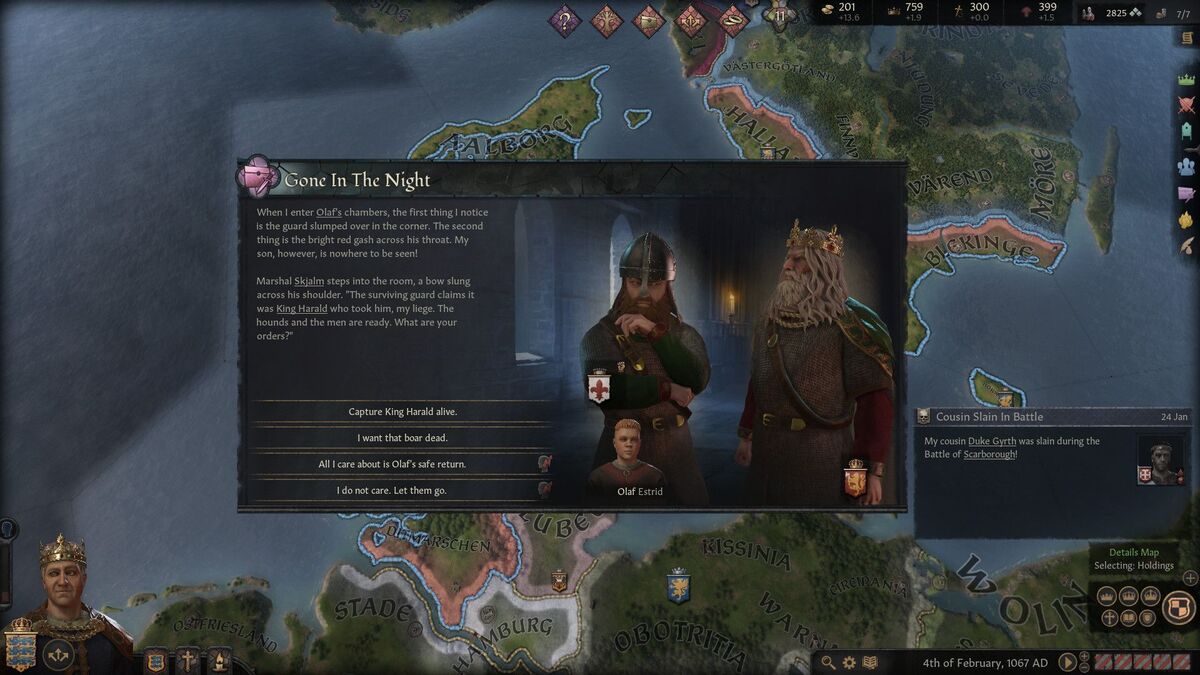
It’s not easy running a country, but Crusader Kings III is significantly easier on newcomers than its beloved—but dense—predecessor. The deep tutorial is a much-needed improvement, but Paradox also added a heavy coat of polish that makes the game feel much more friendly. Of course, that friendliness disappears the second your nephew initiates a plot with a coven of witches to try to assume your throne, but Crusader Kings III easily stands out as the best grand strategy game yet, with incredible levels of complexity, flexibility, and insane political machinations.
Crusader Kings II became a cult classic. Crusader Kings III seized the crown outright. You can sink hundreds of hours into this and still barely scratch the surface.
Cyberpunk 2077

As CD Projekt Red’s first triple-A game after the legendary Witcher 3, Cyberpunk 2077 wound up becoming hyped to impossible levels, then saw its reputation dragged through the mud when the game launched in a dire state on last-gen consoles. Don’t let that scare you off it on PC, though. Sure, there are bugs, but Cyberpunk 2077’s Night City feels alive like no other virtual metropolis, with dense streets and an unprecedented verticality that opens up all manner of paths. You’ll find secrets tucked everywhere too. CD Projekt’s writing remains best-in-class, the deep character builds allow immense flexibility in play styles, missions often have more than one available outcome, and a robust photo mode provides hours of extra entertainment if you’re into that sort of thing.
Cyberpunk 2077’s story can be completed in a couple dozen hours if you stick to the main quests, but the real depth lies in the abundant side missions and gigs, and just exploring every nook and cranny of Night City. Take your time and enjoy—though since the character builds are so varied, and the quests offer so many outcomes, you can hop right back in with a totally different playthrough as soon as you’re done.
Red Dead Redemption 2
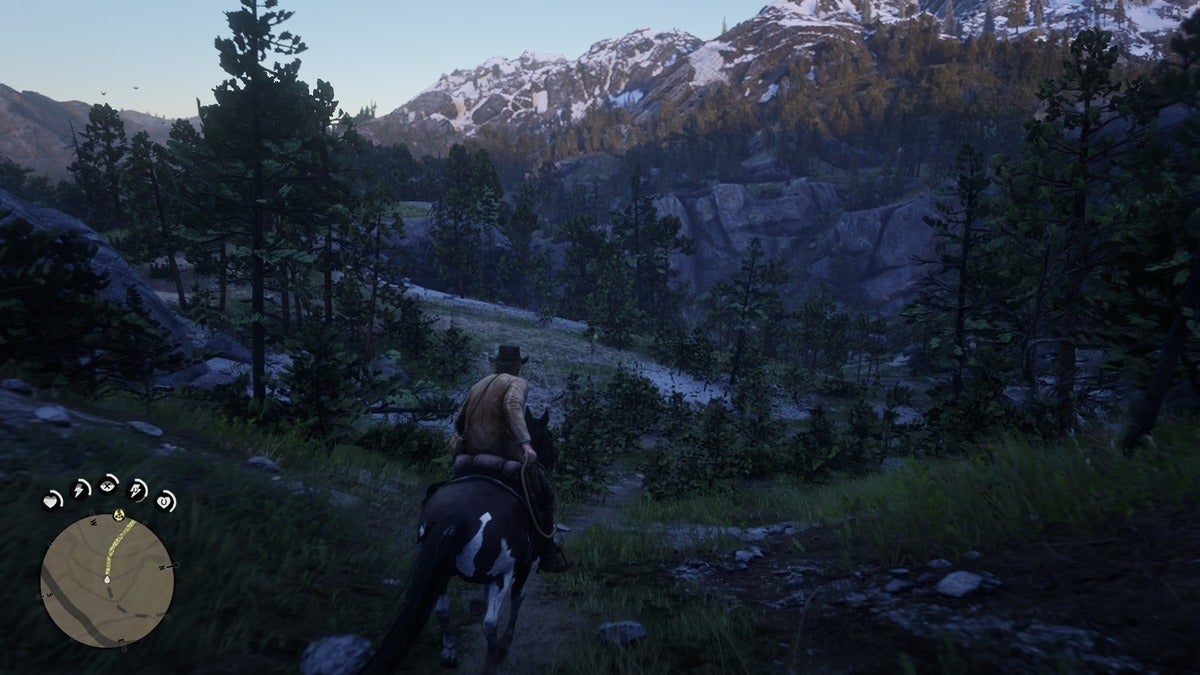
Rockstar’s critically acclaimed and utterly massive open-world western finally landed on PCs a long year after its console debut, but the wait was worthwhile. Red Dead Redemption 2 on PC is the definitive way to play, with options galore and luscious graphics that can even bring a fearsome GeForce RTX 2080 Ti to its knees if you crank up all the eye candy.
It’s one of the longer games in recent memory too, fleshed out even more by all the diversions. We’ve been even more enthralled by simply wandering the massive landscape, hunting animals, buying pomade for Arthur Morgan’s mustache, and caring for our horse than the actual story. Rockstar truly made a living world here, and you’ll want to get lost in it for a while—especially if the superb Photo Mode sinks its hooks into you.
Temtem
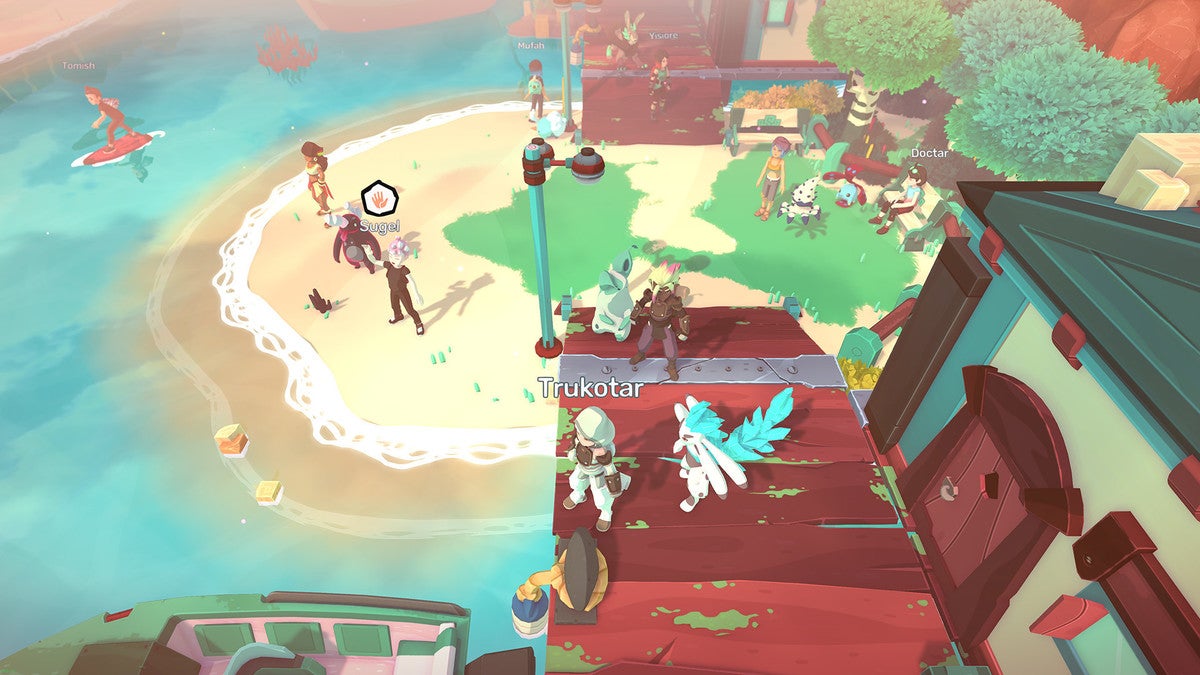
Pokemon, for all its popularity, has never really had a great PC equivalent—until now. Temtem is a “loving homage,” by which I mean it’s as close to Pokemon as you could get without being sued. It’s the knock-off Oreos of video games.
Still, I’m not complaining. Sure, it’s a bit disorienting visiting Professor Konstantinos and picking from three starter Temtems and capturing your first definitely-not-Pidgey in a card instead of a ball. You get used to it though, and Temtem even improves on the source material in some ways, upping the difficulty and depth with two-on-two battles. I wish it was less of a grind, but hey, it’s in Early Access and it’s as close to a competent Pokemon clone as we’ve ever received on PC.
Disco Elysium
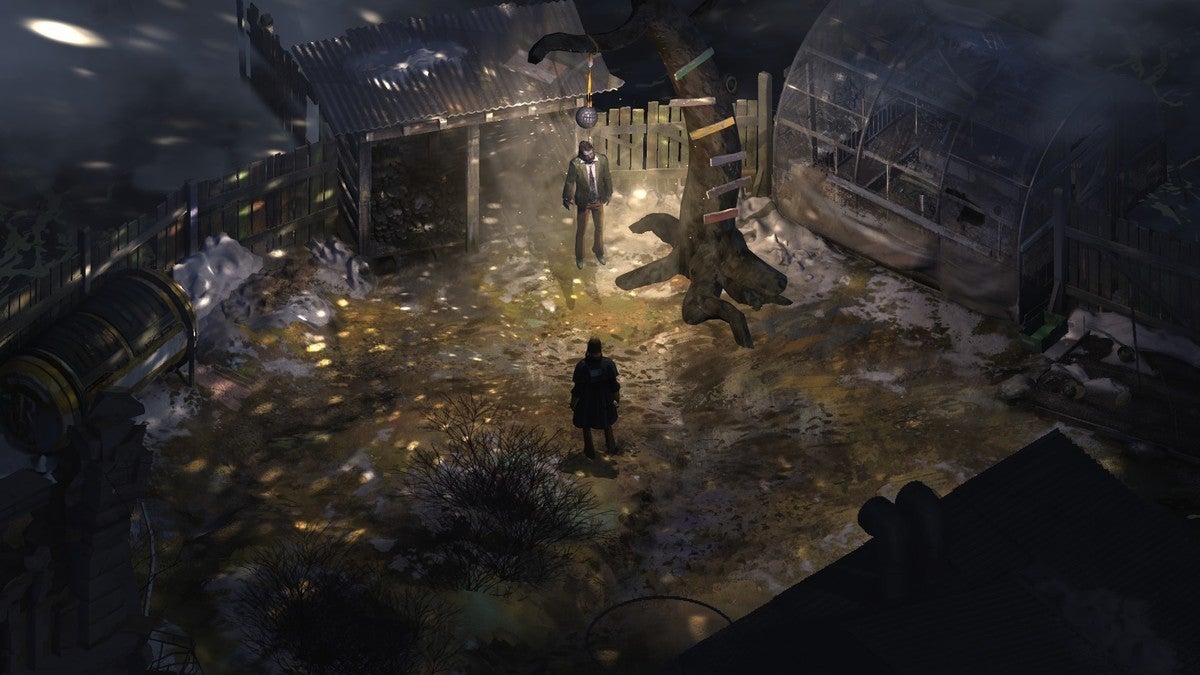
Disco Elysium is like Planescape Torment, if Planescape plopped you in the shoes of an amnesiac drug-addicted cop recovering from one hell of a bender in the middle of a murder investigation. And, uh, your party consisted of the warring voices and emotions shouting in your head instead of other people. And there was no combat.
It’s the most transformative RPG we’ve played in a long time, and the best PC game of 2019. Better yet, it transforms around you, heavily adapting to the skills you choose, the voices in your head you decide to listen to, and whether or not you decide to play things straight or indulge the wild impulses suggested by those whispers. It’s wild stuff—much more than we can get into here. Check out our review for more details. And it’s more than you can likely bite off too, as the developers say the game last 60 to 90 hours, and it just screams for repeated playthroughs.
If you prefer your deep roleplaying experiences with a more Fallout-y vibe than Disco Elysium’s strict CRPG roots, check out Obsidian’s The Outer Worlds, a.k.a. the Fallout: New Vegas spiritual successor you always pined for. It’s great.
Planet Zoo
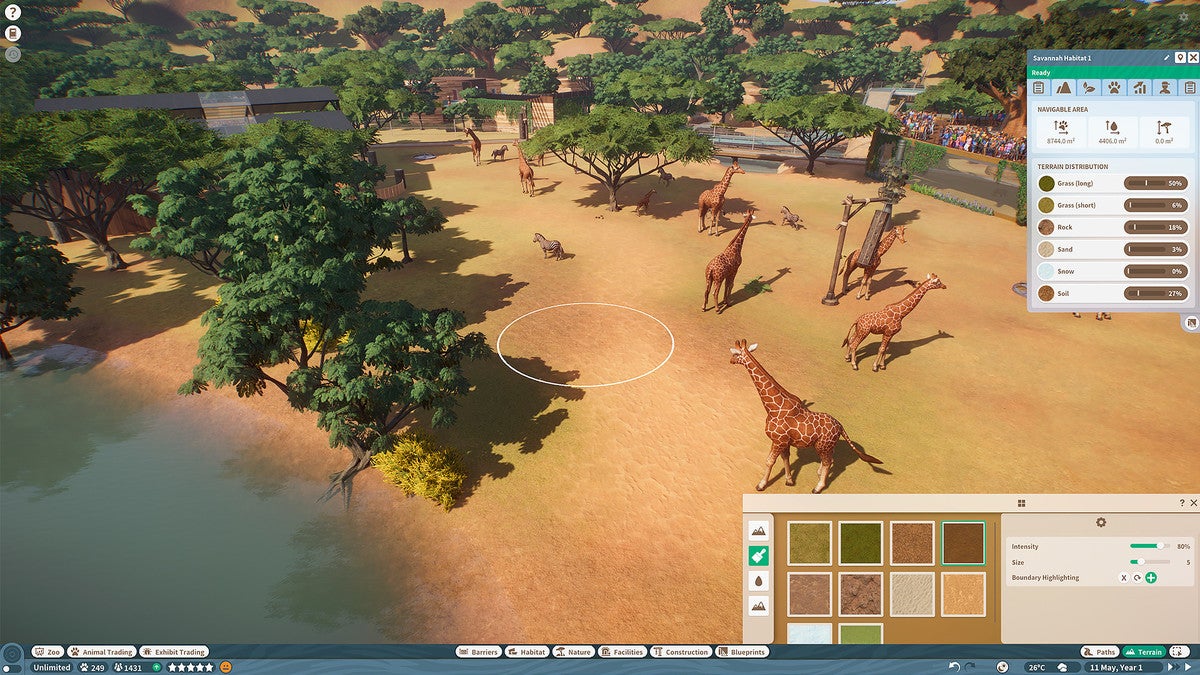
Planet Zoo is dangerous. While writing this, I thought “I guess I’ll pop into the Steam Workshop and see what people have been working on.” Then almost an hour disappeared, as I dug into donation bin covers and custom flower arrangements and different fences and reptile houses and—wow, apparently someone made a McDonald’s?
There’s an incredible construction set at the heart of Frontier’s builders, both Planet Coaster and now Planet Zoo. If you want to design every last detail of an exhibit, every plant and rock and water feature, then there’s nothing better than Planet Zoo. And if you just want to watch the simulation play out, watch animals go about their lives? Yeah, it’s pretty great for that too.
It’s one of those games I’m always sad to stop playing—and after tonight’s trip through Steam Workshop, it looks like it’s about time to start again.
Pathfinder: Wrath of the Righteous
There’s nothing quite like a good isometric role-playing game to suck you into its grap, and this sequel to 2018’s ambitious Pathfinder: Kingmaker ups the ante in almost every way. The game engine received a massive overhaul to address concerns from the previous game, and Pathfinder: Wrath of the Righteous is much easier to play than its predecessor thanks to a great on-boarding process and improved tooltips. The story is separate from Kingmaker, but still follows an adventure path of the same name from the Pathfinder tabletop franchise, so don’t worry if you haven’t played the older release. Wrath of the Righteous features deep and involved quests, mind-bending combat encounters, and plenty of customization options that will keep you busy for many weeks and months to come.
Final Fantasy XIV

I can’t believe we got here. Lest we forget: Final Fantasy XIV was so bad upon initial release, Square Enix killed it dead. Buried it. Then they rebuilt basically the entire game from scratch and released Final Fantasy XIV: A Realm Reborn.
But from ignominious beginnings arose perhaps the best MMO of the modern era. Maybe even more than that. According to our own Leif Johnson, “There’s no longer any question that Final Fantasy XIV warrants inclusion in discussions of the best Final Fantasy games of all time.” The catch? You’ll need to put in upwards of 100 hours in order to experience its best bits, working your way through six years of story and the accompanying grind. Then again, that’s perfect for this article, so what are you waiting for? Better create your very own cat-lady and give it a go.
Divinity: Original Sin 2
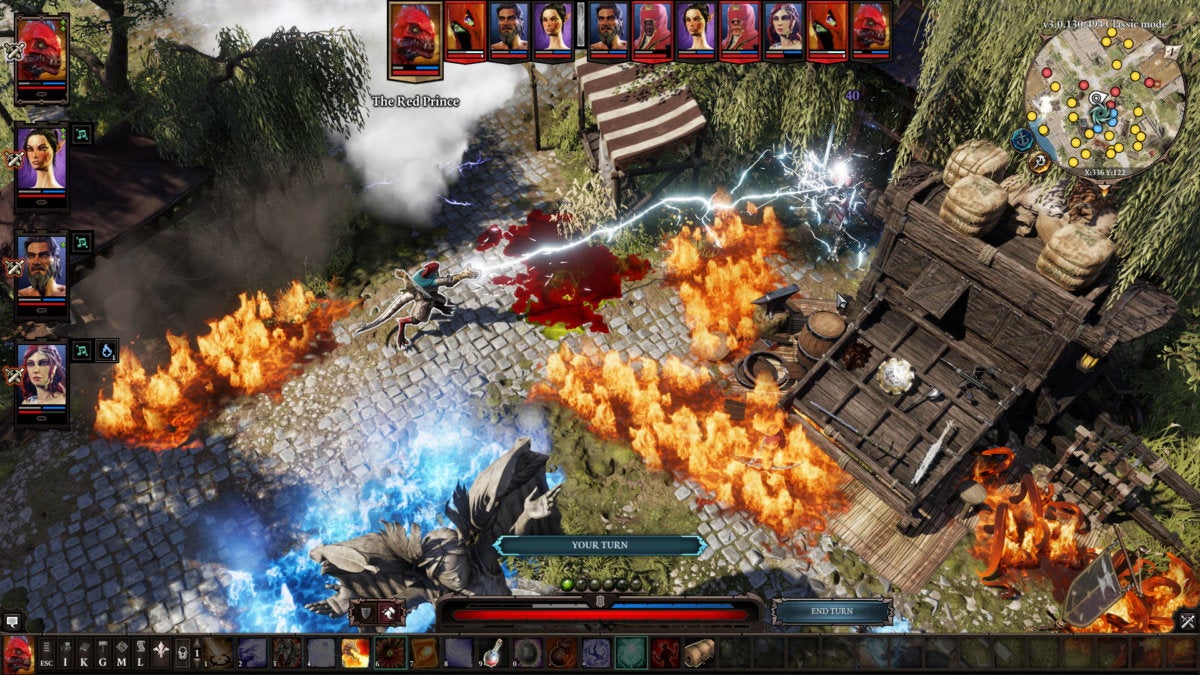
The first Divinity: Original Sin was one of the best PC games of 2014 thanks to its deep systematic combat, which felt like what isometric CRPGs could have been if they had thrived over the years instead of temporarily dying in the early 2000s. Divinity: Original Sin 2 is better in every way, and sits beside The Witcher 3 as one of the best role-playing games released this decade.
Original Sin 2 doubles down on the XCOM-like mechanics of the original, but the real improvement came in the story. To say narrative was an afterthought in the original would be an understatement. Divinity: Original Sin 2 steps it up, weaving compelling dialogue together with Larian’s hallmark mechanics-first approach. Every quest, dialogue, and interaction is modified by your character’s unique traits, such as race and upbringing—doubly so if you play as one of five preset “Origin” characters.
This game clocks in at a meaty 80-plus hours. The ability to roll your own characters, shift around the characters of your party, or even play the whole thing in four-player co-op gives the game near endless replayability. Play this!
No Man’s Sky
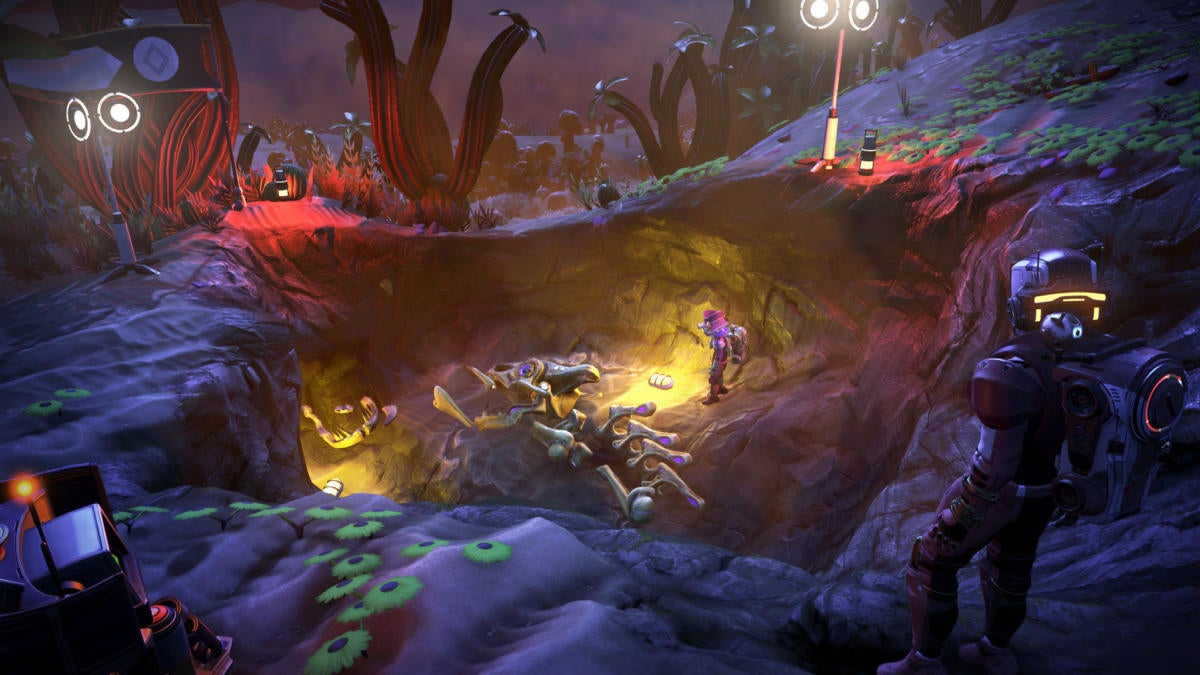
No Man’s Sky might never be the game people wanted it to be pre-release, but it’s gotten damn close over the past few years after a slew of serious (free) upgrades. Multiplayer! Better crafting! Base building!
As I said when we re-evaluated the game, “If you’re still somehow hoping for that ‘Wow’ moment, exploring this ‘limitless’ universe, I don’t think you’ll find it.” No Man’s Sky is still the greatest example of procedural generation’s failings, as you keep seeing the same plants and rock formations and et cetera across the entire universe, watching the ingredients combined and recombined into “new” combinations like a video game version of the Taco Bell menu.
That said, actually playing No Man’s Sky has improved a lot since release. If you’re looking for a light space sim, an Elite Dangerous or a Star Citizen where you can lean your chair back and explore in peace, it’s worth a second look—especially if you bought it in 2016 and it’s still kicking around in your Steam library. I’m sure that applies to some of you reading this.
Witcher 3
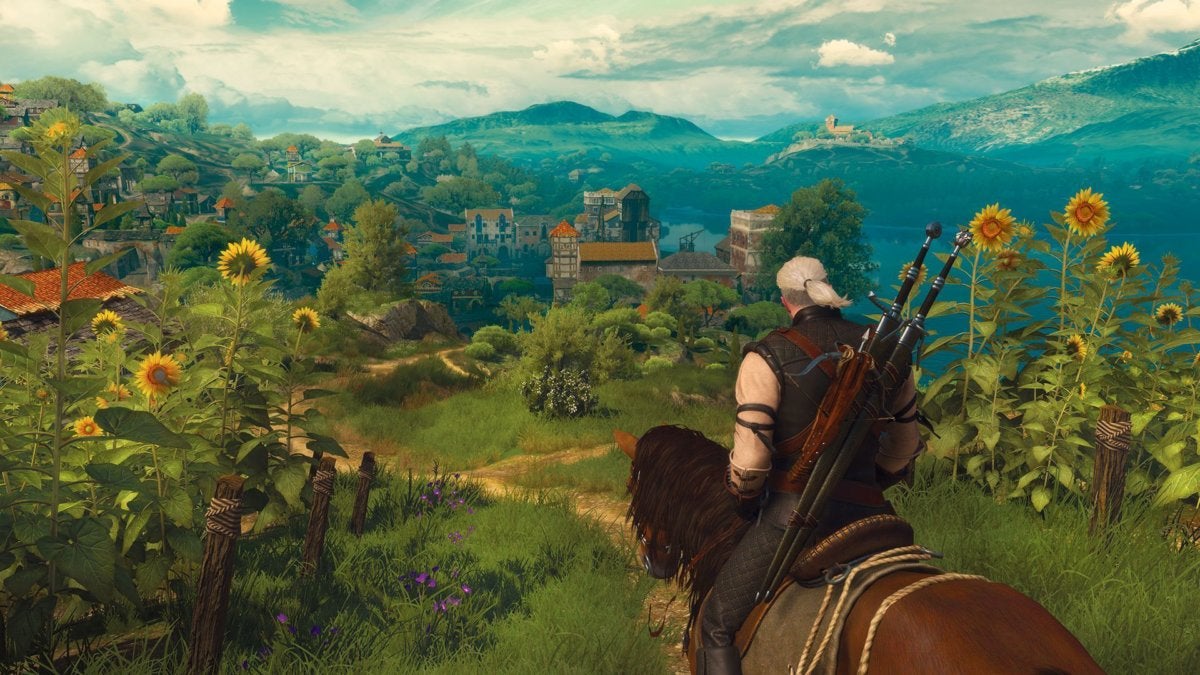
The final chapter of witcher Geralt of Rivia’s trilogy mixes the grim, realistic atmosphere the series is famous for with an open world reminiscent of Skyrim—but oh so different.
Rather than ruining the experience, I’ll just say that Witcher 3: Wild Hunt earned a rare five-star review, easily won PCWorld’s 2015 game of the year award, and is my personal favorite game of all time. If you’re rushing, you’ll wrap it up in 60 to 80 hours. Feeling more explorative? Expect to spend as much as 200 hours-plus wandering the world, slaying monsters, and that’s before you dip into the fantastic expansions.
XCOM 2
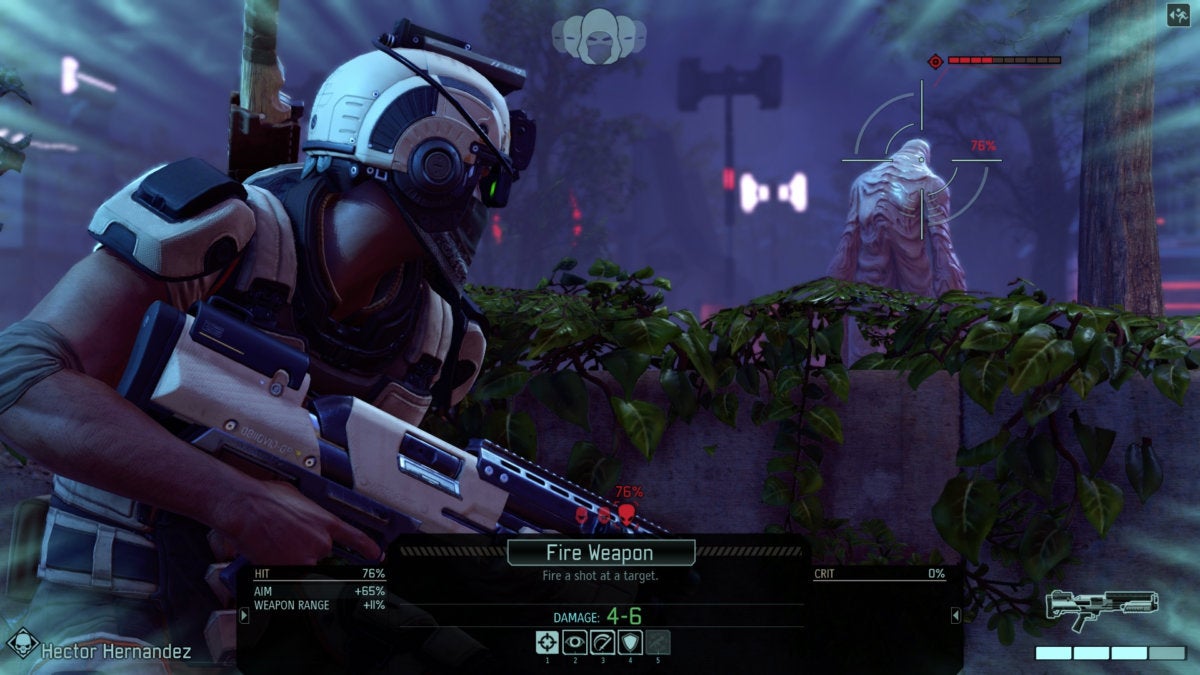
XCOM 2 ratchets the tension even higher than the original reboot by putting you on the offense, as XCOM becomes a guerrilla force in a world conquered by aliens. You command a force of soldiers putting their lives on the line to conquer the threat. That’s no joke: If one of the commandos under your watch dies, he stays dead, taking his hard-won experience with him. Too many wrong moves could leave your squad stacked with rookies rather than grizzled vets, possibly forcing you into restarting the game.
XCOM 2‘s tactical, turn-based combat is tough, with both maps and enemies randomized for every battle, but the game gives you plenty of time to think through your moves. During the strategic phase between missions, you deal with organizational tasks—managing finances, expanding XCOM’s influence, researching newly uncovered alien tech, et cetera. You have to balance between striking the aliens where it hurts while avoiding their counterattacks, juggling scarce resources all the while. It’s excellent.
The game offers near endless replayability, but if you get sick of the basic scheme, two additional modes turn XCOM 2 into whole new games, essentially. War of the Chosen is an official expansion by Firaxis that adds a ton of new factions, enemies, storylines, weapons, and more, while the sublime Long War 2 total conversion mod greatly extends the duration of the game and ramps up the importance of the strategic map and resource planning. They’re both excellent, full stop.
Note: When you purchase something after clicking links in our articles, we may earn a small commission. Read our affiliate link policy for more details.

